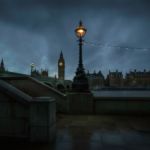 If you care about democracy and think the courts and Parliament should be able to stop the government doing whatever it wants, it’s probably worth filling out this short survey. But don’t hang around – it closes tomorrow (2 November). I heard about it from the ‘Make Votes Matter’ group which campaigns for a fairer voting system.
If you care about democracy and think the courts and Parliament should be able to stop the government doing whatever it wants, it’s probably worth filling out this short survey. But don’t hang around – it closes tomorrow (2 November). I heard about it from the ‘Make Votes Matter’ group which campaigns for a fairer voting system.
It’s not clear what’s afoot. At best, it doesn’t mean much, but at worst it could be a sign of the government starting to take a few pages from the dictator’s playbook. The survey is from the House of Commons Public Administration and Constitutional Affairs Committee. The committee, supposedly there to challenge the government but chaired by hard-Brexiteer William Wragg, says it is inviting the public’s views on “what issues the Government prioritises when it forms its new Constitution, Democracy and Rights Commission.”
So what’s that all about? Remember that last year after a judicial review sought by Gina Miller, the Supreme Court found Boris Johnson’s government had acted illegally in advising the Queen to use her Royal ‘Prerogative’ to suspend Parliament. Johnson had to apologise to the Queen and obey the court. Weeks later the Conservative manifesto contained this section which read to many like a threat to take revenge.
“After Brexit we also need to look at the broader aspects of our constitution: the relationship between the Government, Parliament and the courts; the functioning of the Royal Prerogative; the role of the House of Lords; and access to justice for ordinary people. The ability of our security services to defend us against terrorism and organised crime is critical. We will update the Human Rights Act and administrative law to ensure that there is a proper balance between the rights of individuals, our vital national security and effective government. We will ensure that judicial review is available to protect the rights of the individuals against an overbearing state, while ensuring that it is not abused to conduct politics by another means or to create needless delays. In our first year we will set up a Constitution, Democracy & Rights Commission that will examine these issues in depth and come up with proposals to restore trust in our institutions and in how our democracy operates.”
 These words were called out as sinister by experts on history and politics. The law firm Kingsley Napley, for instance, said: “Any incursion into the Human Rights Act and judicial review would represent a loss to mechanisms of holding the state to account.” But since a mention of the Commission in the Queen’s Speech, little has happened. Indeed, at one point Tory commentators believed the idea had been quietly shelved. Now it seems to be back on the agenda. Quite why is unclear.
These words were called out as sinister by experts on history and politics. The law firm Kingsley Napley, for instance, said: “Any incursion into the Human Rights Act and judicial review would represent a loss to mechanisms of holding the state to account.” But since a mention of the Commission in the Queen’s Speech, little has happened. Indeed, at one point Tory commentators believed the idea had been quietly shelved. Now it seems to be back on the agenda. Quite why is unclear.
What is clear is that democracies depend on parliaments, courts and the media to stop governments doing oppressive things. That’s why dictators from Hitler and Stalin to Saddam Hussein have taken power away from judges and parliaments. We are now seeing these tools of dictatorship deployed again across Europe, from Poland’s muzzling of judges and Hungary’s efforts to stamp out media criticism to Turkey’s mass arrests of lawyers. This a very nasty slippery slope along which to start sliding.
We don’t know why the Commons committee has chosen now to run this survey. It is framed oddly and possibly slanted to get the answers the government wants by the way it makes things sound either attractive or opaque. For example, one might give high priority to “The ability of our security services to defend us against terrorism and organised crime” only to find the government using it as an excuse to let MI5 read more of our emails. Conversely one might not think “deliberative democracy” is important, and thereby provide the government with a reason to reduce consultation on major policies. People may not think “the electoral system” matters, but had it been called “a proportional voting system”, they might have thought differently.
Personally, I gave top priority to the electoral system, access to justice, devolution of power from central government and deliberative democracy and lowest priority to everything else.
Someone, somewhere knows what’s going on and what they want out of it, so I would recommend taking a minute or two to say what you want. It might matter.